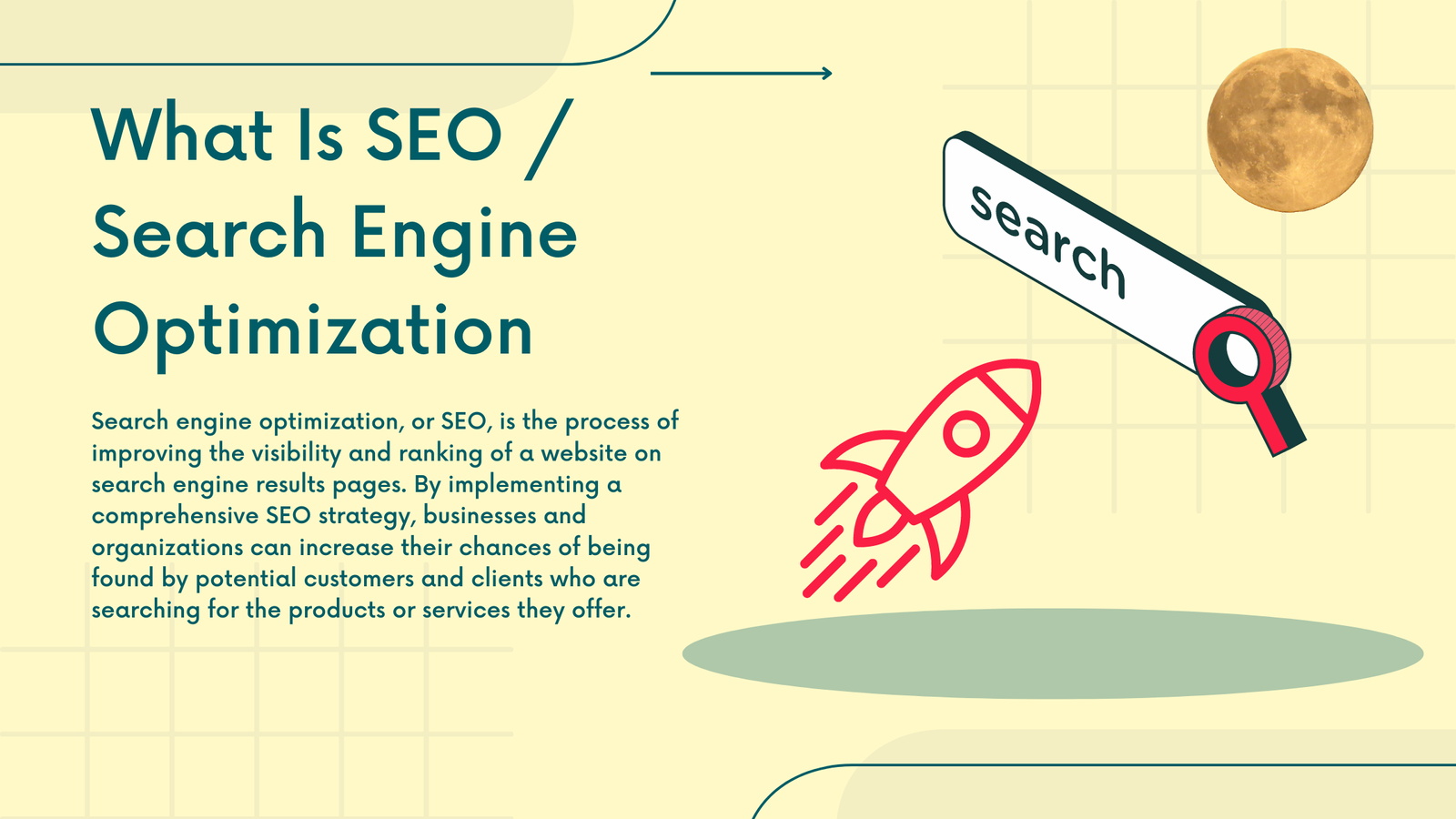
8 Factors to consider when choosing an e-commerce platform for your business in 2023
March 13, 2022
A Complete Guide to Payment Methods for Nigerian E-Commerce Businesses
December 15, 2022Introduction to SEO

Sections
- Introduction To SEO and Its Importance
- How Search Engines Work and The Role Of SEO
- Key Elements Of SEO, Including Keyword Research, On-Page Optimization, And Link Building
- Best Practices for Implementing SEO on Your Website
- The Benefits of SEO and Its Impact on Search Engine Rankings and Traffic
- The Future of SEO and The Importance of Staying Up-To-Date with Industry Trends and Updates.
- Common Misconceptions About SEO and The Need for A Comprehensive, Well-Rounded Strategy
- The Relationship Between SEO and Other Digital Marketing Channels, Such as social media And Content Marketing
- The Role of User Experience and Engagement In SEO
- The Importance of Monitoring and Measuring the Success of Your SEO Efforts
- Conclusion And Next Steps for Incorporating SEO into Your Digital Marketing Plan.
What is SEO and Why is SEO Important?
Search engine optimization, or SEO, is the process of improving the visibility and ranking of a website on search engine results pages. By implementing a comprehensive SEO strategy, businesses and organizations can increase their chances of being found by potential customers and clients who are searching for the products or services they offer. But what exactly is SEO and how does it work? In this blog post, we will take a deep dive into the world of search engine optimization and explore the key elements that make up a successful SEO strategy.
How search engines work and the role of SEO
When a user types a query into a search engine, the engine’s algorithm uses a series of factors to determine which websites should appear at the top of the results page. These factors include the relevance and quality of the content on the website, the number and quality of external links pointing to the website, and the overall user experience of the website. SEO is the process of improving these factors in order to increase a website’s ranking on search engine results pages. There are several key elements that make up an effective SEO strategy, including keyword research, on-page optimization, and link building.
Key elements of SEO
- Keyword Research
- On-Page Optimization
- Link Building
What is Keyword Research?
Keyword research is the process of identifying the words and phrases that users are most likely to search for when looking for the products or services that your business offers. By incorporating these keywords into your website’s content, you can increase the chances that your website will appear when users search for these terms.
What is On-Page Optimization?
On-page optimization refers to the process of optimizing individual web pages in order to improve their ranking on search engine results pages. This includes optimizing page titles and meta descriptions, incorporating keywords into page content, and improving the overall user experience of the page.
What is Link Building?
Link building, meanwhile, involves the process of acquiring external links from other websites that point to your own. These links serve as a vote of confidence for your website, indicating to search engines that your website is relevant and trustworthy. By acquiring high-quality links from reputable websites, you can improve your website’s ranking on search engine results pages.
SEO Best Practices
In order to implement a successful SEO strategy, it is important to follow best practices. This includes regularly creating and publishing high-quality, relevant content on your website, and making sure that your website is mobile-friendly and easy to navigate. It is also important to monitor and measure the success of your SEO efforts, in order to make any necessary adjustments and improve your results.
Benefits of SEO
One of the main benefits of SEO is that it can increase the visibility of a website on search engine results pages. This is important because the higher a website appears on the search results, the more likely it is to be seen by potential customers. By implementing effective SEO strategies, businesses can increase their chances of appearing at the top of search results for relevant keywords, which can result in more organic traffic to their website.
Another benefit of SEO is that it can help to improve the user experience of a website. By using techniques such as keyword research and on-page optimization, businesses can ensure that their website is easy to navigate and provides relevant and valuable information to users. This can improve the overall user experience, which can lead to increased engagement and conversion rates.
SEO can also help businesses to build trust and credibility with their target audience. By providing valuable and relevant information on their website, businesses can establish themselves as experts in their field. This can help to build trust and credibility with potential customers, which can lead to increased conversions and sales.
In addition, SEO can help businesses to improve their local search visibility. By optimizing their website for local keywords and implementing local SEO strategies, businesses can improve their chances of appearing in local search results. This can be especially beneficial for small businesses that are trying to attract customers from a specific geographic area.
Overall, SEO is a valuable tool for businesses that want to improve their online presence and attract more potential customers. By implementing effective SEO strategies, businesses can increase their visibility on search engine results pages, improve the user experience of their website, build trust and credibility with their target audience, and improve their local search visibility.
The Future of SEO
SEO is an ever-evolving field, and it is important to stay up-to-date with industry trends and updates. As search engine algorithms continue to evolve, the factors that determine a website’s ranking on search engine results pages are constantly changing. By staying informed and making adjustments to your SEO strategy as needed, you can ensure that your website remains competitive and continues to rank well on search engine results pages.
Misconceptions About what SEO is and How it Works
Despite the many benefits of SEO, there are still many misconceptions about what it is and how it works. Some people believe that SEO is a one-time process, while others think that it is only about incorporating as many keywords as possible into website content. In reality, SEO is a continuous process that requires a well-rounded, comprehensive strategy in order to be effective. This means not only incorporating keywords into your content, but also ensuring that your website has a strong user experience, is mobile-friendly, and has high-quality external links pointing to it.
Relationship Between SEO & Other Digital Marketing Channels
User experience and engagement are also important factors in a successful SEO strategy. Search engines want to provide their users with the best possible results, and therefore prioritize websites that offer a positive user experience. This means that in addition to incorporating keywords and optimizing your website’s structure, you should also focus on creating engaging, high-quality content that will keep users on your website and encourage them to engage with your business.
Importance of Monitoring in any SEO Strategy
Finally, it is important to monitor and measure the success of your SEO efforts. By tracking key metrics such as organic traffic and search engine rankings, you can see how well your website is performing and make any necessary adjustments to improve your results. This will help you to stay on top of industry trends and ensure that your SEO strategy remains effective.
Conclusion
In conclusion, SEO is a crucial component of any digital marketing plan. By implementing a comprehensive SEO strategy, businesses and organizations can improve their visibility on search engine results pages, increase organic traffic to their website, and improve their overall user experience. By staying up-to-date with industry trends and monitoring the success of your efforts, you can ensure that your website remains competitive and continues to rank well on search engine results pages.






